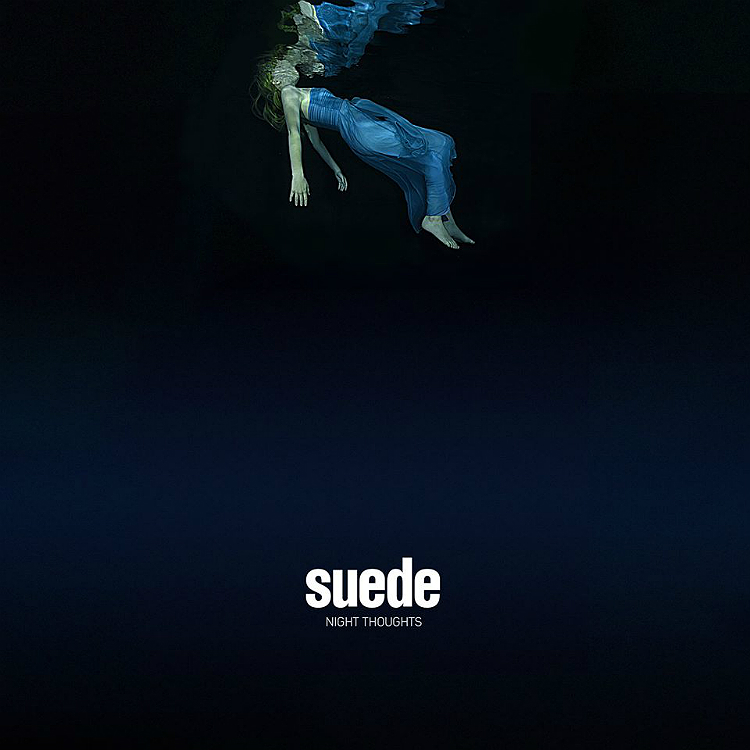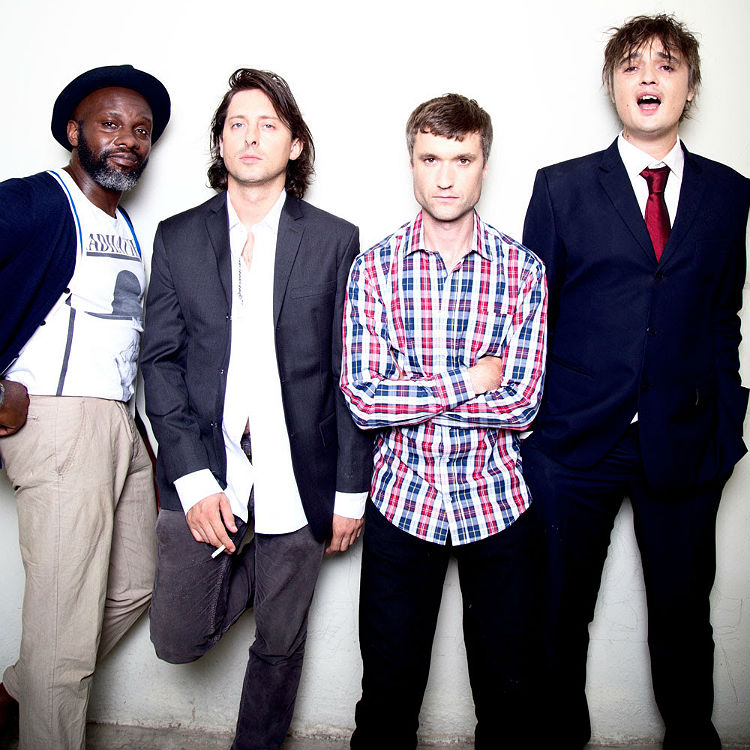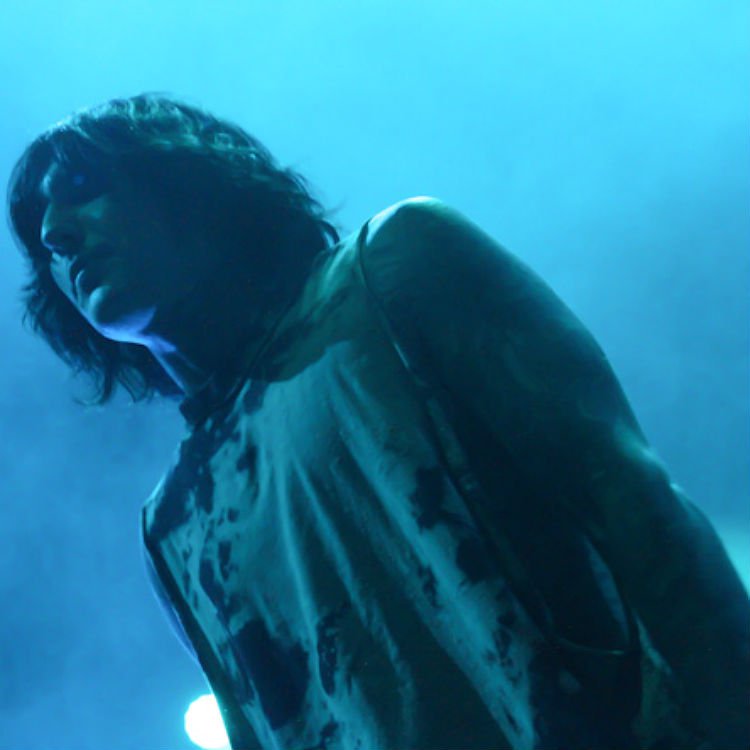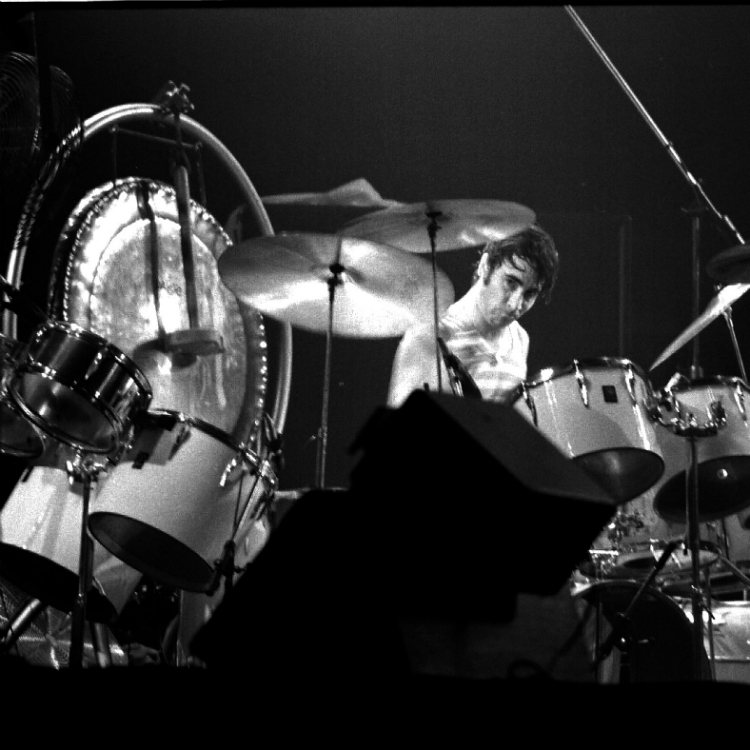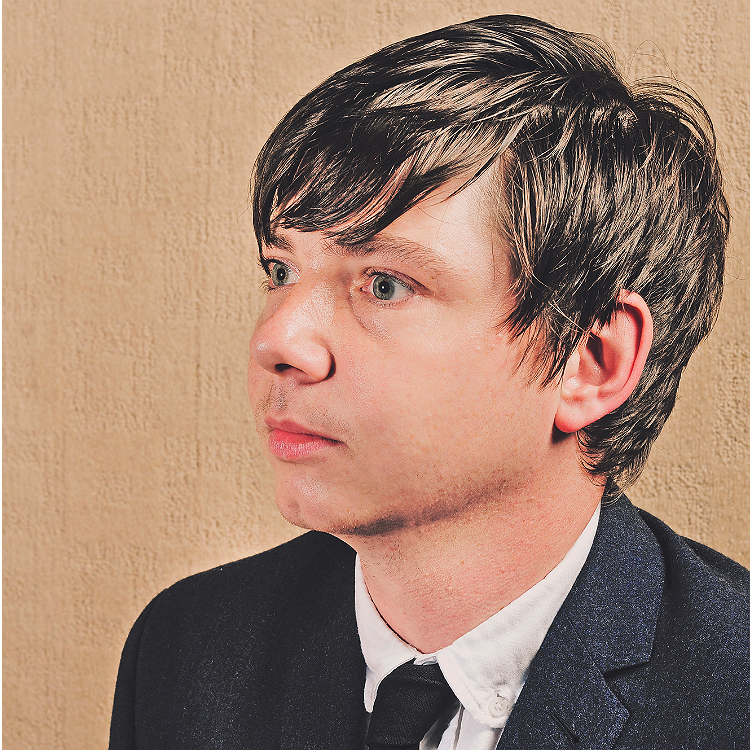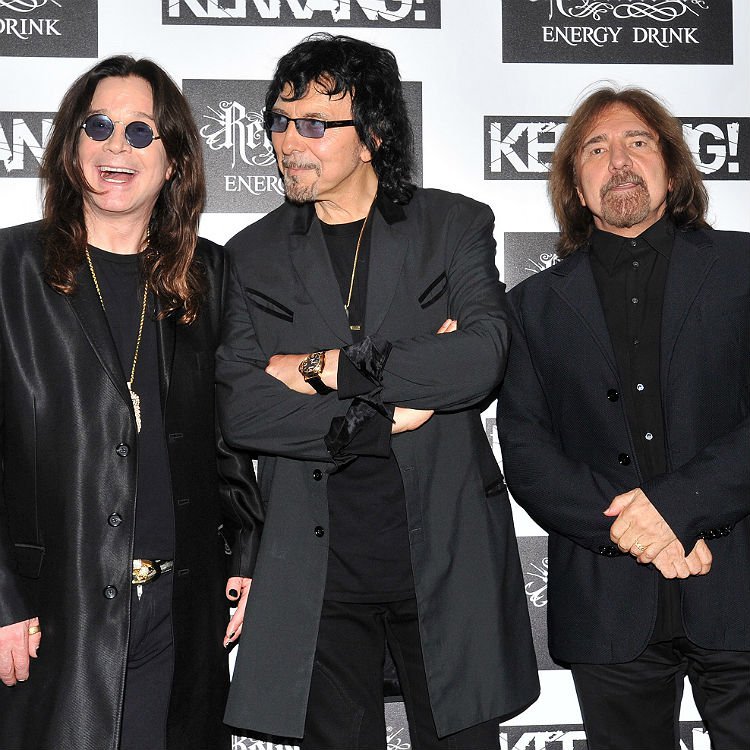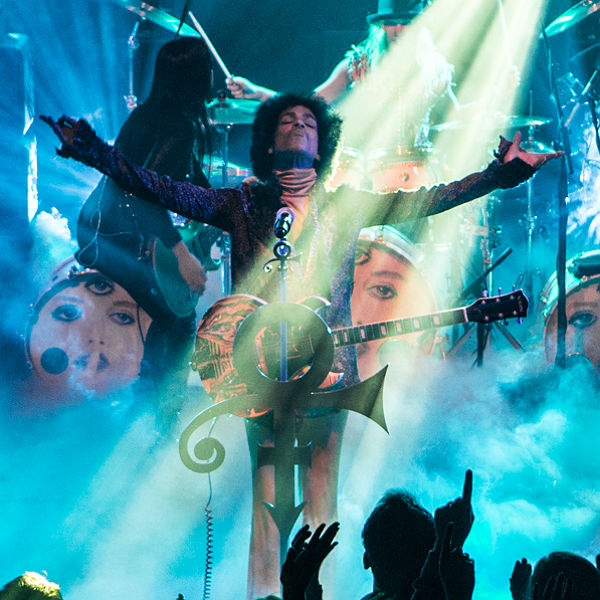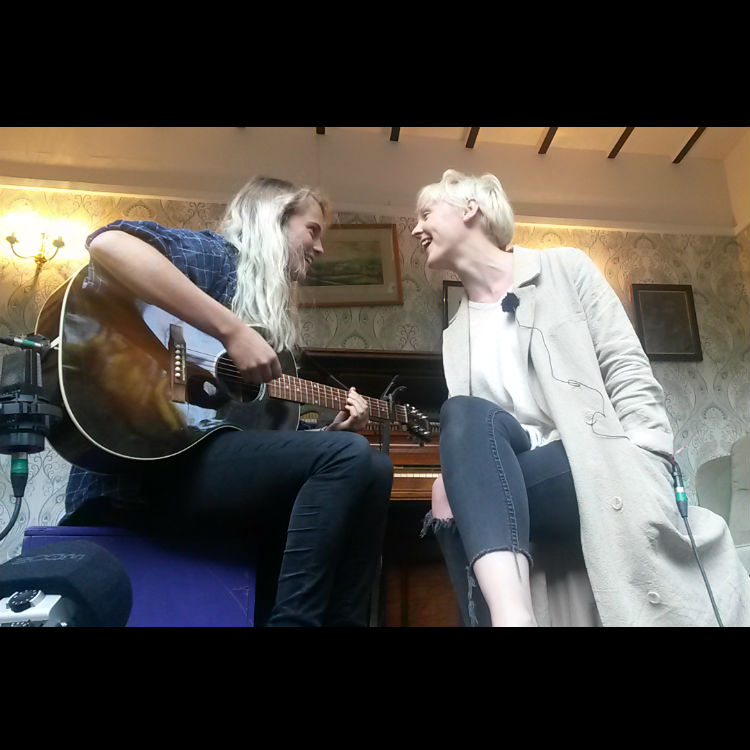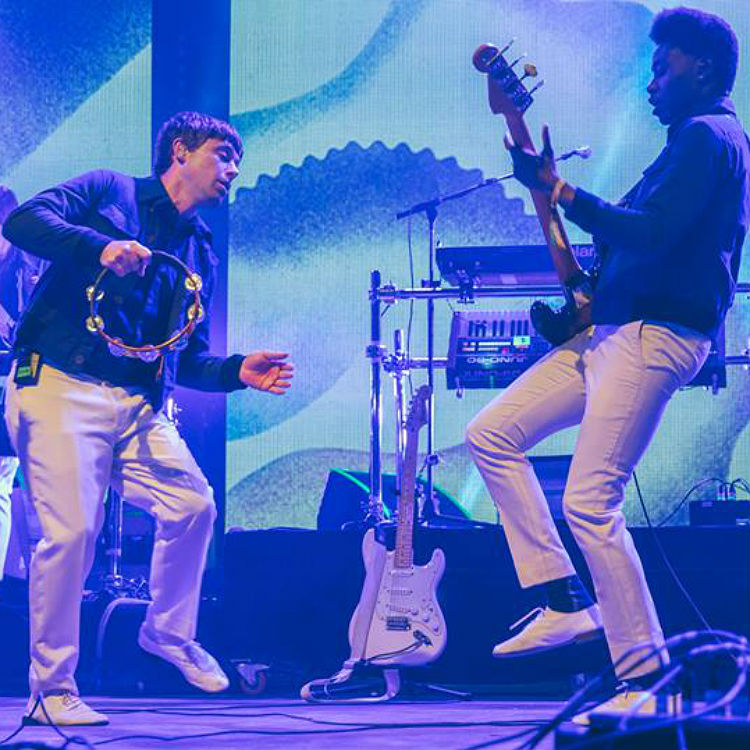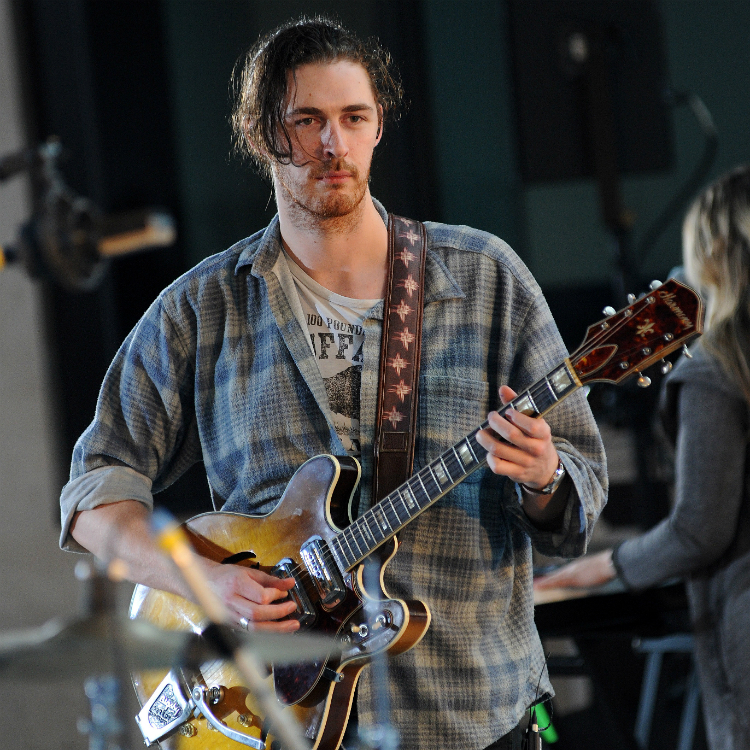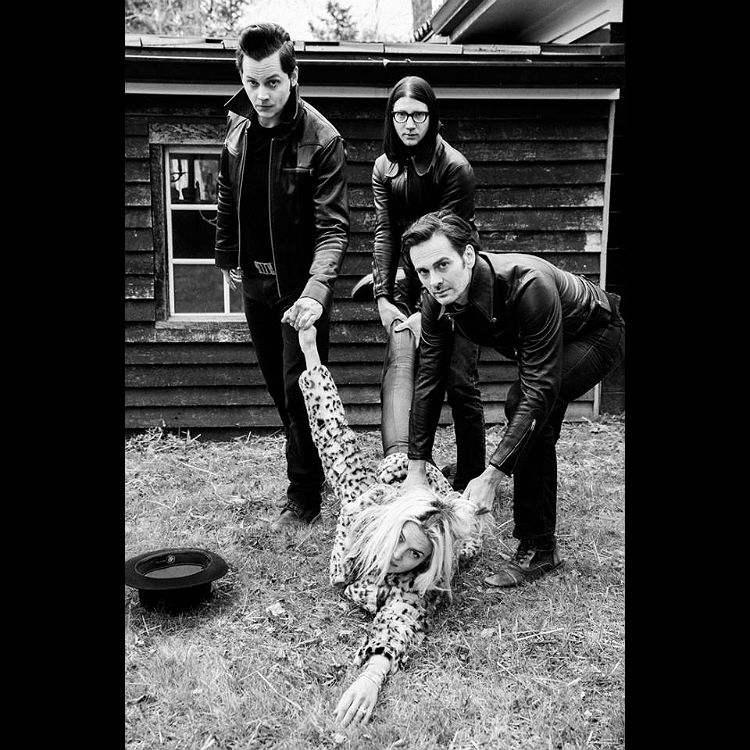
“What is the difference between a muffin and a cupcake?” asks Mimi, a concerned We Are Scientists fan. “A muffin has a fish centre. A cupcake has icing on top, and has a centre of pork or boar,” respond We Are Scientists, in unison, on a section of their website called ‘Advice’. Mimi is no one off. Trawl your way through the pages of ‘advice’ that We Are Scientists have handed out over recent months and you’ll find plenty of Mimi’s. Jostein, another recent advice seeker for example, “smells bad under her knees”. “Do I eat too much turkey?” she ponders. “You don’t eat enough turkey,” is We Are Scientists' short answer, which rapidly unravels into a more complex explanation involving cell phones and a smell that is “somewhere between pine and freshly laid blacktop.”
There aren’t too many bands like We Are Scientists, who these days consist of just vocalist and guitarist Keith Murray and bass player Chris Cain (drummer Michael Tapper left the group “admirably” in October 2007). In a world where even rock musicians are destined to conform, they seem to exist to show that that simply doesn’t have to be the case. That’s not to say, however, that during the three years since they released their debut album, ‘With Love And Squalor’, they smashed up guitars and threw televisions out of hotel windows. Rather, Murray and Cain’s nonconformity comes in the form of spontaneous university seminars, quirky onstage gimmicks and ironic advice sections on a website; all of which coexist alongside the day-to-day recording and performing duties of being in a band.
 There are no gimmicks to be seen as Murray and Cain wriggle to get comfortable in the restaurant booth of a deserted music venue just off Regent Street. Today they’re here to talk about their second album, ‘Brain Thrust Mastery’; an album of eleven songs that at times seem a world away from the post-punk guitar sound of their debut. “I feel like we’ve pulled a fast one with that,” says Murray, about the synth lead ‘Ghouls’, which opens the album. “We definitely wanted to do something, I guess unexpected wasn’t the intention but definitely not doing the same record was important to us.”
There are no gimmicks to be seen as Murray and Cain wriggle to get comfortable in the restaurant booth of a deserted music venue just off Regent Street. Today they’re here to talk about their second album, ‘Brain Thrust Mastery’; an album of eleven songs that at times seem a world away from the post-punk guitar sound of their debut. “I feel like we’ve pulled a fast one with that,” says Murray, about the synth lead ‘Ghouls’, which opens the album. “We definitely wanted to do something, I guess unexpected wasn’t the intention but definitely not doing the same record was important to us.”
Those who are familiar with We Are Scientists will know what comes next here. It’s the area of their personalities that turns often serious answers into comic impasse; where Murray and Cain rebound off each other like a well refined comedy double act.
Still talking about why it was important to move away from the sound of their first record, Murray continues: “Just personally so we weren’t playing the same style and, I’ll be honest with you, junk garbage that we were on the last record. But also because it would be pretty embarrassing to put out a record that sounded very much like our last one. That would seem like we were just riding the wave, sure, that we created…”
“A huge wave,” interjects Cain, stretching each monosyllable. “The tsunami that was born of earthquake We Are Scientists,” describes Murray. “It’s a wonderful wave that I think you’ll notice a lot of bands…”
“It’s a crowded wave these days, not a lot of space on top,” Cain reveals, once again interrupting Murray mid sentence. “And a lot of stoners came out capitalising on our break,” adds Murray. “That pisses me off,” jokes Cain, sipping on his water. This time there’s no response from Murray. Either their material has run out or the scene is over.
Work on ‘Brain Thrust Mastery’ began in December 2006 - “kind of immediately” after they had finished two years of relentless touring of, ‘With Love And Squalor’. After four months of recording what Murray calls “really, really basic demos” at their practise space in New York, the band – still with Tapper on drums – moved onto “fairly detailed demos” with a producer before travelling to The Plant in Sausalito, California to record the album proper.
“You expect that the equipment will work” Murray says, about recording at a studio that, since it opened in the 1970s, has seen the likes of Prince, Huey Lewis and Van Morrison entrust it with one of their albums. “You feel like at least they probably will have good equipment, which on our first record was actually a pretty serious problem.”
Among the equipment that clearly worked was a keyboard, an instrument that has given ‘Brain Thrust Mastery’ a far greater diversity than their first record; from the subtle synths that ripple in the background of ‘Lethal Enforcer’ to the “Fo-Sho” power-pop melodies of ‘Chick Lit’, it’s an omnipotent presence. “While we were recording we just allowed ourselves to say, ‘Oh, what else would be good here?’ and the answer always was the keyboard,” Murray admits. Cain jokes that by the end of recording they would solve any teething problem by saying: “Let’s throw in the keyboard.”

This introduction was also born in part, Murray says, because on the “last record I think a lot of the arrangements came from us feeling the limitations of three instruments and doing everything we could to make up for that.” Indeed, when We Are Scientists began to make their waves in 2005, they found themselves crashing amongst a renaissance of men with guitars and a drum kit – particularly in the United Kingdom, where bands like the Arctic Monkeys, The Kooks and Bloc Party were catching a wave that began across the Atlantic four years earlier. “Even at the time that that last record came out that specific movement was fairly crowded and now it’s absolutely oversaturated,” sighs Murray. “So I think we were already past our interest in that anyway but to continue to labour in that genre, there didn’t really seem like any point to contribute some more stuff to spiky, post-punk, dance.”
As Cain reaches to grab Murray another bottle of water, talk turns to the current music scene in New York, which also seems to be heading in a new direction. When We Are Scientists decamped to Brooklyn in 2000 following University in California, the city was preparing to unveil the very acts that became the inspiration for the likes of Alex Turner and Luke Pritchard a few years later. Although they acknowledge New York’s new era, which has seen the rapid rise of band’s like Vampire Weekend, MGMT and Yeasayer, both men, who are currently living in London, agree that “it’s no 2001.”
“It just doesn’t feel like there’s as much of a cohesive sound,” explains Cain. “I think what was interesting about 2001 was you had all these bands that seemed to inform each other - TV On The Radio, Yeah Yeah Yeahs, Liars were all very much part of a big picture. I don’t think these bands feel like they’re part of a big picture. They may be individually good and interesting but there doesn’t feel like there’s a particular New York thing happening right now.”
That could change, however, according to Murray. “I would say that New York is about to shape up in a major way because a lot of our friends that live in London are talking a big game about moving to New York,” he says. “Yeah, all of a sudden a lot of our friends over here are talking about how they’re gonna move to Brooklyn.”
“That’s cause we moved here,” Cain jokes. Murray explodes with laughter before speaking on behalf of ‘their friends’: “’London’s kind of sucked recently’.”
Murray and Cain’s journey hasn’t always been a musical one. “It was an after thought” following four years of experimenting with just about everything else according to Cain. His partner picks up the story: “It was like the fifth attempt at actually getting something done and it was the first time we actually got something done,” Murray says. “We had a lot of big ideas. Initially, we were gonna write some books, there was gonna be a major motion picture.” And then of course, the band happened. “Yes, finally somebody else was vaguely interested in throwing their capitalistic hand into the mix,” he jokes.
Although We Are Scientists are now firmly established as a band, their reluctance to focus on simply making and performing music means crowds are often left “really confused” as to what they’ve witnessed. “I think for a long time before we had any project we were just always…at least talking about doing about ten different things at once,” Murray says. “So now that we actually have the means to get some those things done, the fact that we do them seems to confuse a lot of people who think that we should just be doing music, which seems,” he ponders, “pretty ludicrous to us I think - I’m gonna include Chris in here.”
“Why would anyone just do music?” asks Cain. “I’ve always been confused by that.”
Would they describe themselves as natural performers? “No I don’t think we’re natural performers,” Murray says. “I think we’re very comfortable performers.” Cain interrupts: “That comes from arrogance though.” Murray smiles. “Yeah I think we’re very arrogant dudes. I wouldn’t say that people coming to our University seminars would say, ‘Wow those dudes are natural gifted comedians,’ but I think what we do have is, I think we’re natural performers in that we pretty much act like ourselves at all times so I think people are, maybe not disarmed by that, but are more forgiving because it just seems like we show up and say, ‘So anyway, what’s up, it’s us again, here’s something we’re gonna do.’”
He continues: “It’s just us, I think you’re gonna find it really good, and people are like, ‘Oh yeah, Keith and Chris showed up and that was actually pretty good,’ where as, if for example skilled comedian Robin Williams came up and did that the crowd would tear him apart, the crowd would take the stage and rip his body to shreds.”
Later this month, armed with their new material, We Are Scientists will leave their short-term rented apartments in London and head out to join the musical circus once again - where ultimately it’s the music, and not advice on smelly knees, that prevails. That’s something they're both aware of. “I don’t think that we think that everything we do is the raddist shit that ever happened,” says Murray, “but I think we’re really confident in our ability to make it work out.”
‘Brain Thrust Mastery’ is out now.







